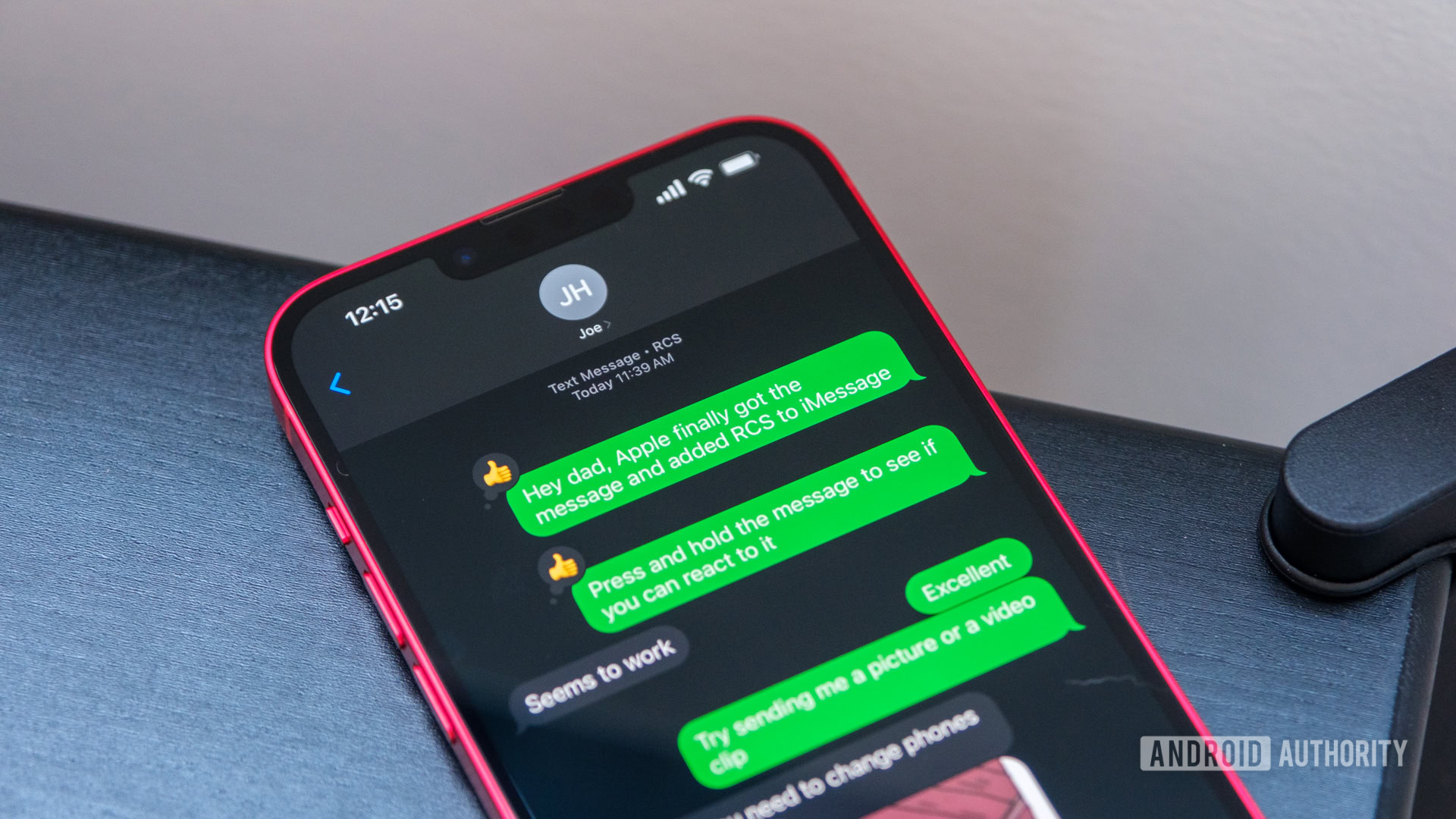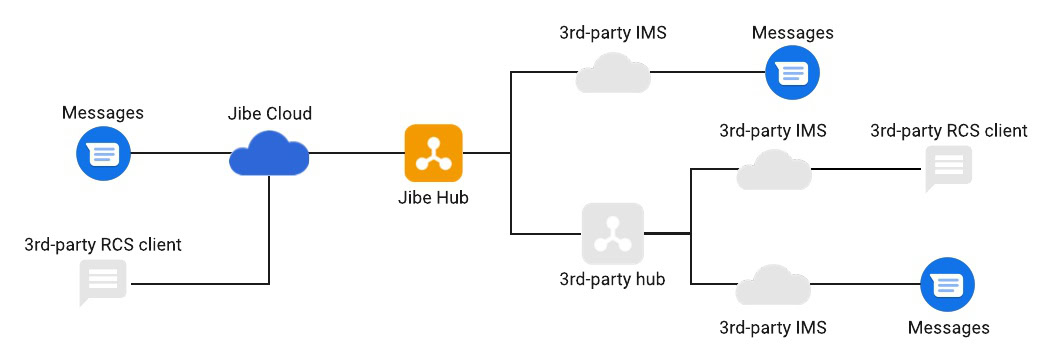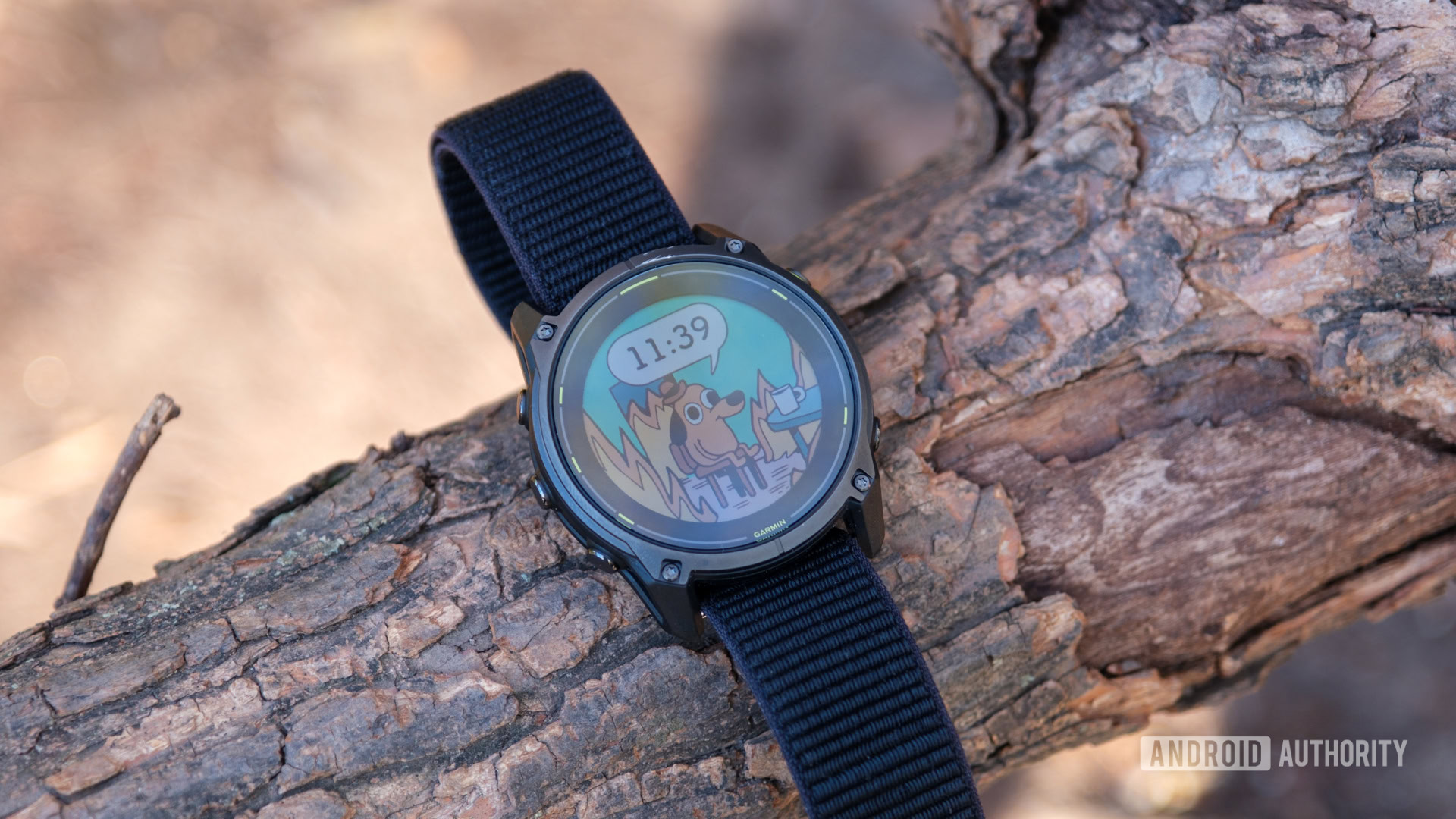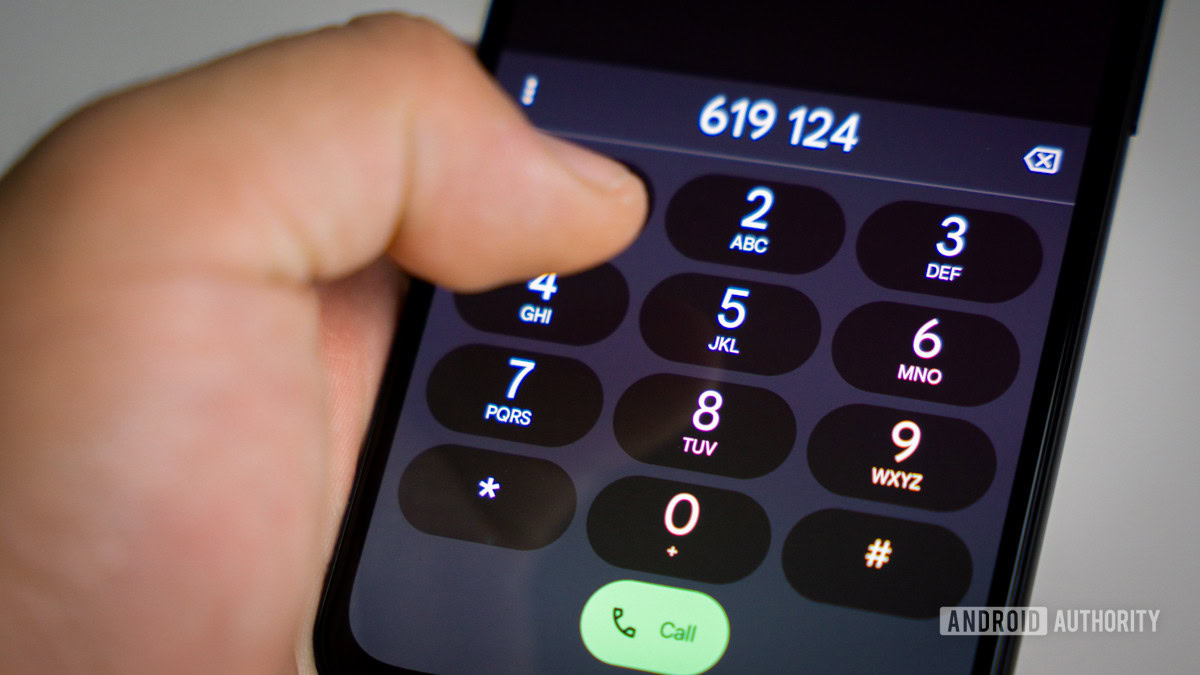
Ryan Haines / Android Authority
After a battle of words lasting many years, Rich Communication Services, or RCS messaging, is finally available on iPhones via Apple’s Messages app. In theory, iPhone and Android users can share RCS messages seamlessly, complete with read receipts, emoji reactions, and support for high-resolution media sharing. The reality, though, is not so smooth sailing: Cross-platform RCS messaging works, but it also sometimes doesn’t.
Have you experienced problems with RCS messaging?
0 votes
Apple’s RCS requires carrier support

Ryan Haines / Android Authority
While Apple might have changed the messaging game with RCS support, there are limitations that will feel alien to those of us in the Android sphere. Unlike Google Messages, Apple’s implementation relies on carrier support (we’ll get more into the differences in a minute), which means that although your iPhone technically supports RCS, you still might not be able to use all the best RCS features with everyone you chat with.
Even though iPhones now support RCS, there's no guarantee it will work with all your contacts.
Let’s start with the good news. The US big three — AT&T, T-Mobile, and Verizon — are all on board, covering a good portion of but certainly not all US consumers with RCS support on iPhones (and other handsets). If your friends and family are all on one of the major networks, you’re in the money.
However, cheaper prepaid plans and MVNOs aren’t all so lucky. At the time of writing, Cricket, FirstNet, US Mobile, Visible, and Xfinity are supported, but that’s a small drop in the US MVNO ocean. Likewise, RCS carrier support varies wildly across global markets, and there’s no guarantee that your specific network supports the feature in full or even partially. Apple has increased the number of supported carriers with every iOS 18 beta, and there are some big names in the Canadian and European markets on the list now, but it’s currently far from comprehensive. Hopefully, this situation will continue to improve. And maybe Apple’s adoption of the standard will push more of the straggling carriers to implement it on their networks sooner.
So what does this all mean? Well, if you’re primarily in an iPhone circle of pals, it’s no bother — you’re all using iMessage anyway. Likewise, if you’re messaging Android to Android (via Google Messages), Google’s Jibe backend shares RCS messages seamlessly. The potential problems begin when you step outside of these admittedly refined circles. For example, messaging between iPhone and Galaxy users when one or more parties are on a network that doesn’t support RCS. Samsung Messages is also carrier-dependent for RCS, so iPhone-to-Galaxy messaging relies on both parties being on a supported network. Hence why Samsung is moving to Google Messages in the US. You might also not see RCS messages when texting foreign friends or roaming abroad because their carriers may not support the standard yet.
Apple's RCS implementation requires carrier support, meaning some users are out of luck.
That’s ultimately all quite confusing from a consumer perspective. An iPhone owner can message one contact with all the RCS benefits, but messages to another on a different carrier will fail. Flip the script, and iPhone owners on some carriers may not be able to receive RCS messages at all, even though their Pixel-toting friends are sharing messages regardless of their choice of operator. There are further complications — it’s certainly not obvious to broader Android consumers why their choice of messaging app should matter.
Needless to say, seamlessly sharing RCS messages to anyone and everyone actually requires that several stars align, particularly if you’re outside the US.
Google Jibe, not quite a comprehensive solution
Getting carriers to agree to implement anything universal has historically been like pulling teeth (just look at 4G and 5G rollouts), and RCS has been no exception. The standard was proposed back in 2007, and yet here we are, not far from two decades later, still waiting for huge swathes of smartphone owners to be able to use it. The carrier-to-carrier requirement of RCS was always going to be a problem. Google clearly foresaw the issue when it acquired Jibe Mobile in 2016, a leader in the RCS standard.
Jibe’s technology essentially acts as a server for RCS, allowing operators to host RCS services on its cloud platform, talk to third-party RCS clients, and connect to external RCS networks. For Android, Google Messages is connected directly to Jibe’s backend, allowing two users to communicate via RCS wherever they are, regardless of their carrier. While there are a few regional exceptions, this is a simple and foolproof system for all Android users. You can almost think of it like Android’s iMessage.

A few smaller carriers host their RCS capabilities on Jibe, meaning they all use the same backend and can communicate with each other easily, even when not using Messages. BT/EE is probably the biggest name in Europe. In the US, AT&T, T-Mobile, and Verizon have all committed to moving their servers to Google’s Jibe platform.
Thanks to Jibe, Android is unlikely to break the RCS chain, providing you're using Google Messages.
Jibe Hub also communicates with third-party networks, meaning that any Android phone can send and receive RCS messages to and from devices outside the Jibe network (provided you’re using Google Messages). However, if your contact isn’t on a network that supports RCS, things break down. This is the potential hiccup with Android to iPhones (and Samsung Messages) communication; there’s not always a unified backend to ensure messages are sent; it all depends on the carrier.
Apple could solve this by using Jibe’s infrastructure and bypassing carriers, but we may as well wait for hell to freeze over. It took years — and some legislative EU push — for the company to budge and adopt RCS; it’s highly unlikely that it will go out of its way to use a Google-owned backend.
This all might sound like doom and gloom, but the good news is that Android is already RCS-enabled and the biggest US carriers — as well as many of the world’s largest networks — all support RCS as well. When RCS works, it works well, but there are outliers that still mean many users won’t be able to share advanced messaging features with all of their contacts.
If you’re not able to RCS chat with your iPhone sporting friends, chances are their network simply isn’t yet supported, and there’s nothing to be done about it.






 English (US) ·
English (US) ·